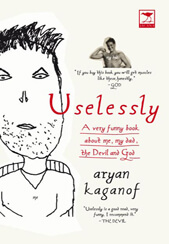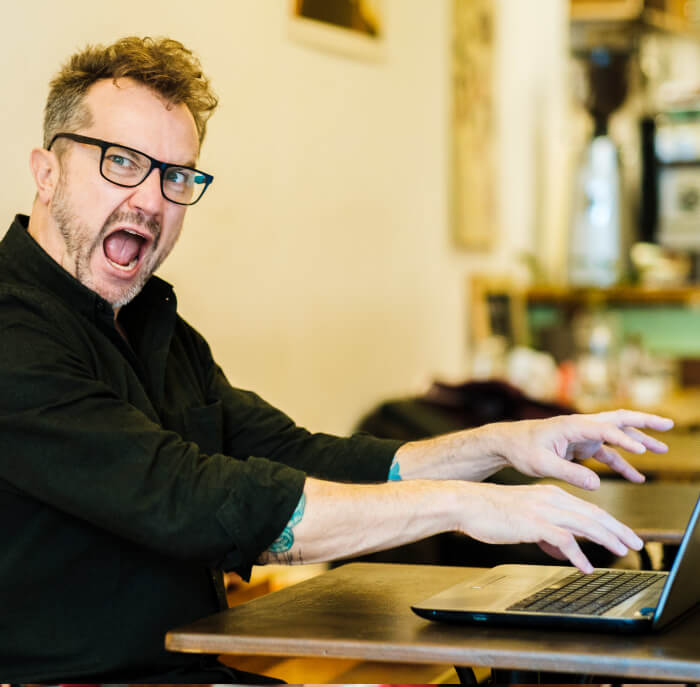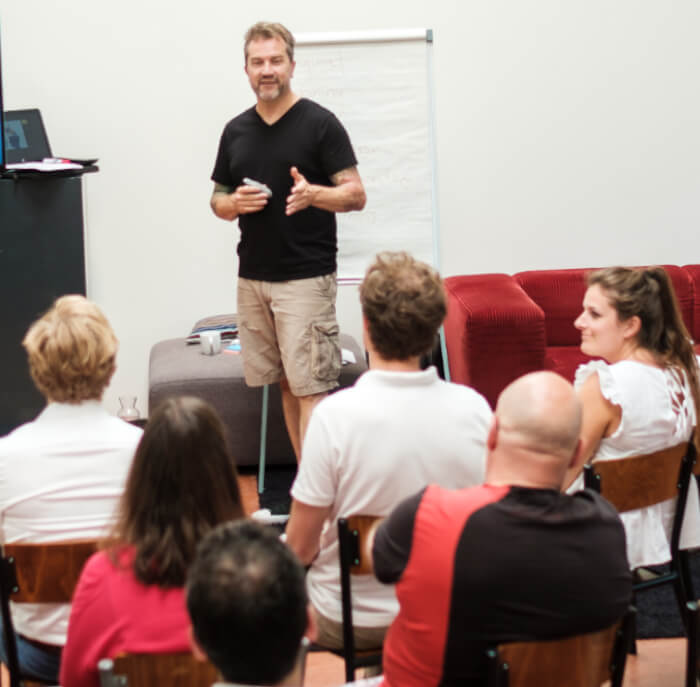
Kaganof has done more in his creative career than most other artists even THINK about doing. Today he shares some thoughts in fairly typical style with us on film festivals!
Whenever one is in Europe for an “African Film Festival” it’s always atrociously organized by badly-dressed people. Most of them are in dire need of serious dental work. None of them would kill you, no matter what you did to their mothers. The women, themselves often bearded, are so ugly as to be beneath considering. The Europeans are always “experts” on African cinema. Europeans are experts on everything.
Bela Tarr just walked in. Needed to smoke. Couldn’t eat without smoking. Walked out.
The other guests all appear to be Americans. This is not, however, a particularly astute observation, as they are always talking, all of them, loudly, at the same time. What they talk about is unclear as, in the hubbub, individual strands of conversation are impossible to make out. Undeterred by the possible hindrance of not being understood, the American men and women, all of whom I presume are tourists here in Perugia, talk throughout their breakfasts, in an abrasive percussion soup of guttural consonants and vowels that, if I am not mistaken, begins to sound suspiciously like machine gun fire. If the war breaks out I wonder how these staccato chattering civilians will be distinguishable from active troops?
Who is taken in by the mystique of Bela Tarr’s cinema? Clearly teenagers who are entirely alienated from their peer group will go for this sort of thing. These troubled, acne-ridden youths are only too eager to spot the meanings “hidden” in the dark, barren spaces that comprise these achingly tedious cinematic tracts. In providing such youngsters with a crutch to lean on, Tarr is doing his audience a great disservice. If he really felt anything for the kind of post-Goth self-pityers that are his chief audience, Tarr would rush into the cinema, drag them out by the ears and thrash the sulkers in much the same way as Baudelaire did to his famous beggar. Pandering to the teenagers’ weltschmerz seems like an awfully thin way for a grown-up to make a living.
Watching Werkmeister Harmoniak last night I realized that this wooden acting belongs entirely to post-Brechtian avant-garde theatre, it has nothing to do with film. Mr. Tarr has executed a series of elaborate confidence tricks that move so slowly nobody can see through them. At the dinner table he never laughs, never looks happy with himself.
The best way of dealing with people is not to see them too often. If I could magically learn a new language overnight I would choose Tsonga and then sit in European cafes talking to myself very loudly until people either bought me a drink or had me arrested.
This morning I went to bed at 6am. Woke up at 11. Lay in bed watching MTV until 2pm. Then I showered, shaved my head and my ass and rushed to Restaurant Da Cesarino and my first liter of red wine of the day. Bela Tarr limps in looking more miserable than usual. Last night at the end of the marathon screening of his 7 and a half hour long Satanstango I asked Tarr if he was working on a director’s cut. He peered at me slowly, answered slowly, “Vot do you mean?” This is the director’s cut.” Boy, this guy is exactly like his movies, very slow, colourless and entirely lacking a sense of humour. Tarkovsky plays like Charlie Chaplin next to Tarr. If he could, Tarr would shoot the entire 450 minute opus in one achingly, agonizingly long tracking shot. Thereby avoiding editing altogether. Tarr’s films and his demeanor remind me of a bad conscience – pricking, niggling, but, oh so very slowly. Tarr cures one of art cinema altogether. Bring on the latest Bond!
In Italy everything is badly organized except the food.
And the strikes.
aryan kaganof
20 november 2002
Plenty of inspiration, stories, facts and research in the articles I publish every week. I write about creative events, thinking and research… anything that has creativity hidden in it. Read the articles…

Sign up for my fortnightly newsletter and receive FREE creativity tips and help with the challenges you currently face. A simple way to keep up to date with the world of creativity.
Creativity will save the world. I share tips, tricks and techniques for creative thinking based on scientific research and personal experience. There is no problem creativity cannot solve. More about speaking…

Like follow, donate: